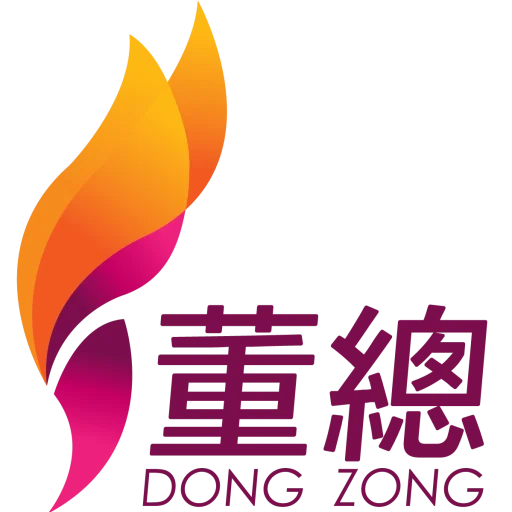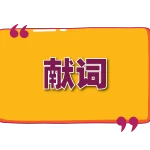New Year Speech by Chairman of Dong Zong Mr Tan Tai Kim
January 1, 2021
Time flies and now year 2021 is here to stay. The entire world is currently shrouded in Covid-19 uncertainty and it is imperative that we continuously monitor its development and review the pandemic prevention measures at all times. Last year Dong Zong managed to accomplish all plans under the concerted effort of all staff. In this brand-new year, hopefully Dong Zong will advance and brave new challenges and ordeals with determination.
1. Covid-19 broadens the digital gap yet all walks of life back the holding of UEC examination
In the midst of March 2020, classroom teachings were called to a halt in all schools nationwide and thus long distance taught programmes were responsively activated. Dong Zong indeed supports wholeheartedly online teaching for all Independent Chinese Secondary Schools (ICSS) by collecting all accessible learning materials and videos from ICSSs and uploaded them to the “Common Platform of Independent Chinese Secondary School Teaching Resource” for teachers to share and make full use of at their disposal. Many ICSSs at the meantime also tried to incorporate online teaching with real life teaching for the sole purpose of teaching efficiency hence put “no classroom teaching yet continuous learning” into practice.
The deficiency being, ever since the implementation of online learning, the digital divide between the rich and the poor further broadens as students from low-income families are in dire needs of learning space and stable internet accessibility, etc. which actually causes the failure of learning and broadens educational gap with more student drop-outs. The latest reports released by the United Nations Children’s Fund pointed out that Covid-19 will pose severe outcome towards children in particular; statistically, one in five children will lose interest in learning. The longer the crisis lasts, the more serious it will affect children’s education, health, nutrition and welfare. The formation of a Lost Generation compromising the future for all will likely be the end-product.
The said virus uncertainty not only pushes the current education in the country towards a brand-new digital model, but also causes the postponement of the holding of Senior and Junior UEC Examination twice. Having assessed variables such as the possible development of the virus, virus prevention measures and the safeguard of the rights of UEC candidates among others, we formulated responsively a Standard Operating Procedure (SOP) as well as counter measures, including the concerted efforts put into by relevant parties and stakeholders for the holding of UEC examination thus to prepare the students for their further studies and prospective career.
2. Multi stream education affirmed while seeing the growth of non-Chinese students in vernacular Chinese primary schools
Malaysia is a multiracial nation; each ethnic group has its own historical memories, culture and mother tongue. However, the difference should not be an alienation but a community nutrient. Multiculturalism is a precious heritage of Malaysia and the establishment of multi stream schools is not for the interest of any one ethnic group. Currently, there are more Chinese and Indian students in national vernacular schools and a rising trend of non-Chinese enrollments in vernacular Chinese primary schools. An advanced and pluralistic country should take the initiative to enhance communications and interactions between the races readily. The past decade saw the stable growth of non-Chinese enrollment in vernacular Chinese primary schools and thus the allegation “vernacular Chinese primary schools compromise national integrity and harmony” will collapse and fall apart instantaneously. Conversely, Chinese-culture-based vernacular Chinese primary schools have indeed turned into interactive grounds for pluralistic cultures.
We welcome the affirmation given by non-Chinese parents towards vernacular Chinese primary schools and will safeguard the inherent characteristics of vernacular Chinese primary schools for the assurance of their eternal development. Of late, Dong Zong authorised the Chinese Department of University Malaya to embark on a survey on non-Chinese students in vernacular Chinese primary schools to discern the responsive measures and policies implemented by these schools. This survey will be administered separately in all states at different periods. To begin with, the first phase will be embarked on the vernacular Chinese primary schools in Selangor, Kuala Lumpur and Negeri Sembilan. The survey is expected to be completed in the first half of 2021.
3. The construction of an integrated complex for Chinese education development
Last year, Dong Zong, Jiao Zong, the Merdeka University Sendirian Berhad and other sixteen organisations or associations jointly organised a series of activities entitled “Ke Arah Baru” (Towards a New Direction) aiming to raise fund for the construction of an integrated complex. The complex is intended for the promotion of Chinese education, ground of cultural interaction, venue of ICSS teacher education and the marking of the UEC papers, venue of public performance and exhibitions as well as the holding of camp of all sorts. Attributed to last year’s Covid-19 pandemic, the progress of the fund-raising project entitled “Every Brick and Tile for Chinese Education” was undermined. Yet in 2021, we will do our best to continuously hold fund raising dinners for the outstanding RM11 million; hopefully, the target will be accomplished with the assistance and financial supports from all of you.
In the tentative schedule of “Ke Arah Baru”, an international mother tongue convention will be held at the end of 2021. As such, local and overseas academics and pundits will be invited for the connection of mother tongue education activists and scholars targeting the formation of a common platform to bridge with the world. In the convention, matters such as the way to carry forward and maintain multilinguistic and cultural development for the assurance of mother tongue users will be discussed. Other key activities such as multi-educational forum, Tan Kah-Kee Education Talk and Young Chinese Educationists Camp will be organised aiming to consolidate the documentation of Chinese education through the many brain-storming and opinion collection sessions. Finally, upon the acceptance check of the implementation, the three-year “Ke Arah Baru” will come to a close.
4. Regression of people-based policy and the fair distribution of education resources
From the Sheraton Hotel incident happened in February last year to the Motion of No Confidence of Budget 2021, the political sparring between the government and the people is a trying period for the tenacity of our Constitution and it will eventually decide the regression or stay of democracy. Co-operation between the people and the government is the key to resolve conflicts and the prerequisite of successful control of Covid-19 spread and it demands concerted efforts from all parties as well as the members of civil society. With this in place, the executive, including the legislative branch will be able to provide security assurance to the people as well as exerting the power of supervision to prevent the society from collapsing into a state of narrowminded and extremist political whirlpool.
Though under the impact of the virus spread, there is no alibi for procrastination in education reform and the inadequate distribution of educational resources. In the midst of crisis and the provision of learning assurance for the students, a new influx of education outlook must be at play for reinvention. For instance, whether the distance taught mode will ensure students’ learning right an unignorable issue for teachers, students, school authority and the government. The government and society should leverage the existing social system, social work system to care for students’ physical and spiritual health. For the fairness of education, the government needs to quicken common digital construction, alleviate the cost of internet usage and digital facilities for underprivileged families so that they are not further caught in a lurch resulted from the Covid-19 pandemic.
Looking forward to this brand-new year, Dong Zong wishes you a fruitful and prosperous year ahead.

